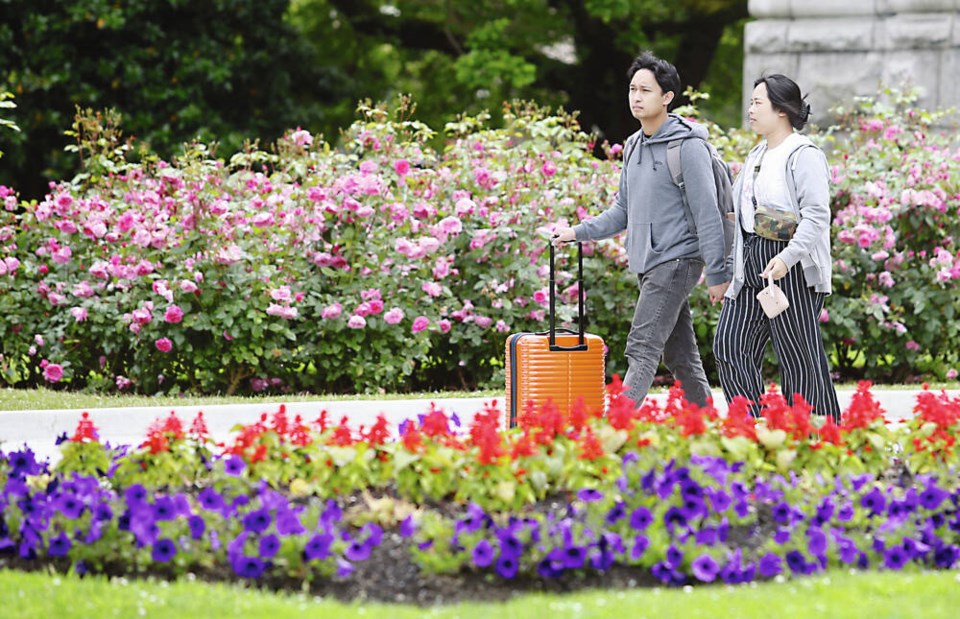July got off to a soggy start, with Victoria airport recording its wettest July 2 since it began keeping records in 1941.
Sunday’s 22 millimetres of rain smashed the old record of 20.8 mm set in 1982. It also entered the record books as the second wettest July day in history, bested only by a 50-mm downpour in 1993.
The station would typically receive 17.3 mm of rain in the whole month of July.
Matt Loney, meteorologist with Environment and Climate Change Canada, said we may have to wait a little bit longer for July’s typical sunny weather because of a temporary weather phenomenon known as a Rex Block parked over Western Canada.
A Rex Block occurs when an upper-level low-pressure system gets caught beneath an upper-level ridge, essentially blocking the jet stream, which is “forced to go round,” stopping the progression of low and high pressure patterns.
The phenomenon typically lasts four to seven days, once every three to four years, but this one looks like it may go nine to 10 days, he said.
“Tuesday looks to be nice and Friday to Sunday looks like sun,” said Loney. “But beyond that, there is uncertainty.”
He said that the weather system has led to exceptionally high temperatures north of the Arctic Circle. Inuvik, Northwest Territories and surrounding communities hit 30 C over the weekend, with more record-breaking temperatures forecast for this week.
Typically, that area would see temperatures in the mid-teens at this time of the year.
While the south has to endure rain, the abnormal spell of high temperatures up north has led to an increase in thunderstorms and lightning, resulting in a more intense firefighting season in the region.
Conversely, British Columbia had seen only 220 wildfires fires by Monday, with none reported in the Coastal region, which includes Vancouver Island.
parrais@timescolonist.com



